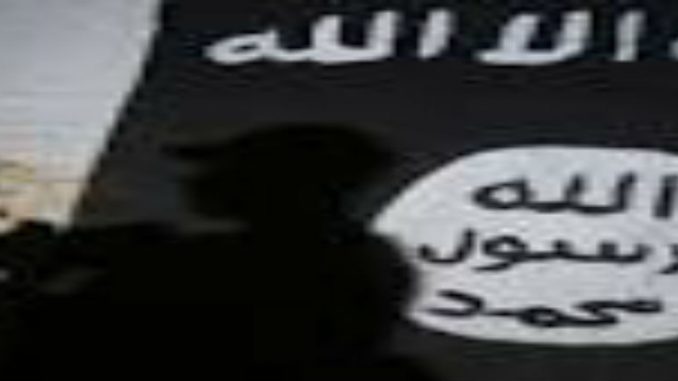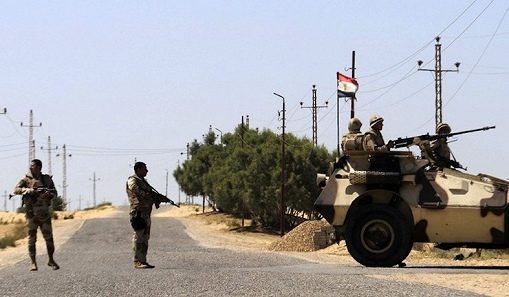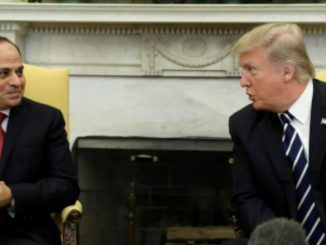
Reuters released a Special Report saying that Islamic State seeks to impose religious rules in Egypt’s North Sinai.
According to Reuters, “On Monday in early April, Shaher Saeed was driving south of the city of Arish in Egypt’s North Sinai when he came upon a group of Islamic State militants who had stopped a truck carrying cigarettes.”
Saeed, who lives in the area, said, “I saw them forcing the driver from the vehicle and stripping the upper part of his clothing before tying him to the door of one of their cars.”
He added, “They hit him on the back more than 10 times, then burned all the cartons of cigarettes … They let him go after warning him not to trade cigarettes again.”
Based on interviews with residents of North Sinai and reviews of Islamic State videos, Reuters report suggests that the group’s local affiliate, known as Sinai Province, is seeking to impose its hardline interpretation of Islam on the local populace for the first time.
According to Sinai Province videos reviewed by Reuters, the group has created a morality police force, known as a Hisba, to enforce strict rules against such behavior as smoking, men shaving their beards or women exposing their faces.
Moreover,”Coupled with a sharp increase in attacks on Christians inside and outside its predominant area of operations in North Sinai, the developments mark a significant change of tactics for Egypt’s Islamic State affiliate,”as reported by Reuters.
It is noteworthy that previously, the group had mostly attacked police, soldiers and their informants.
However, it seems that the group’s widening geographical reach and shift in focus present a challenge for Abdel Fattah al-Sisi, who came to power by a military coup in 2013 vowing to eradicate Islamist extremism and restore security.
However, Reuters said,”Despite government crackdowns that have seen hundreds of militants and protesters killed and thousands jailed, Islamic State is still mounting deadly attacks in Egypt.”
Analysts said that therecent developments reflect how Islamic State is expanding operations in the Arab world’s most populous country as the extremist group faces setbacks in Syria, Iraq and Libya.
“While the group has failed to capture territory in Egypt, it is trying to stoke sectarian tensions and social unrest. An examination of what’s happening in North Sinai, a region rarely accessible by reporters, shows the strategy is scoring some success,”according to the report.
Late March, a 25-minute video posted in on an internet channel often used by Islamic State showed jihadists announcing the creation of a Hisba in North Sinai, modeled on religious police units operating in parts of Iraq and Syria controlled by Islamic State.
ISIS video denounced Christians and Sufi Muslims, and showed enforcers, wearing jackets identifying them as Sinai Province Hisba, burning confiscated cigarettes and drugs and destroying tombs and shrines, which they consider un-Islamic.
An unmasked young militant, who appeared in the video,warned that the Hisba will punish dissenters according to its interpretation of Islam.
Moreover, enforcers are shown hitting one man with plastic tubing and beheading two elderly adherents of Sufi Islam, accusing them of sorcery and apostasy.
Reuters could not verify the authenticity of the video, which has since been removed from the internet.
Egypt’s military spokesman declined to comment on the incidents in North Sinai, the thinly populated but strategic peninsula between the Suez Canal, Israel and Gaza where a legacy of government neglect has created fertile ground for radicalization among disenfranchised locals.
A security source downplayed concerns that the militants were capable of spreading the kind of sectarian violence that has torn apart Iraq.
He said,”They are trying to have an impact, and we are not saying we have completely eradicated them, but they are weak.”
In fact, the latest shift in militants’ tactics began last December, when an Islamic State suicide bomber killed 28 people at the main Coptic Christian cathedral in the heart of the capital Cairo.
In February, Sinai Province declared in another video its intent to wipe out Egypt’s Christians, who account for about 10 % of the 92 million population.
Christians have long faced sporadic attacks in Egypt, usually sparked by disputes over land, church-building or inter-religious love affairs.
But the murder of seven Christians in North Sinai in the three weeks from January 30 was different, more systematic and more insidious, officials and rights groups said at the time.
About 175 families fled the area. Some of them told Reuters that hit lists of local Christians had been circulated online and pushed under doors.
In the same context, the Islamic State militants killed at least 45 people in two church bombings on Palm Sunday last month, prompting Sisi to declare a state of emergency.
Mokhtar Awad, research fellow in the Program on Extremism at George Washington University, said the new campaign against Christians was an effort to tear at the fabric of society and state when other means had failed.
He said,”A confluence of factors has seen this escalation happen now,” adding that “They hope that this is the first step to basically unravel the country.”
As well as launching attacks in major cities like Cairo, Alexandria and Tanta, where the church bombings took place, militants are ranging further afield inside North Sinai.
Where fighting once centered around the cities of Rafah and Sheikh Zuweid, near the Gaza border, militants have carried out more attacks in and around Arish, the provincial capital about 52 km (32 miles) further west.
Since 2014, when Sinai militant group Ansar Bait al-Maqdis pledged allegiance to Islamic State, Egypt has resorted to ever more destructive means to root out the jihadists.
Accordingly, it has smashed a network of tunnels used to smuggle weapons in from Gaza; razed hundreds of homes to create a no-man’s land; and mounted numerous military air strikes.
Those policies have prevented militants seizing territory, however, at a high cost for Sinai local residents.
In the stretch of highway that separates Sheikh Zuweid from Rafah lie about 14 villages. Eleven of them, say locals, are now abandoned.
In October, Reuters reporter drove through three of the villages and saw empty streets, destroyed homes and orchards felled by the military to deprive militants of cover.



